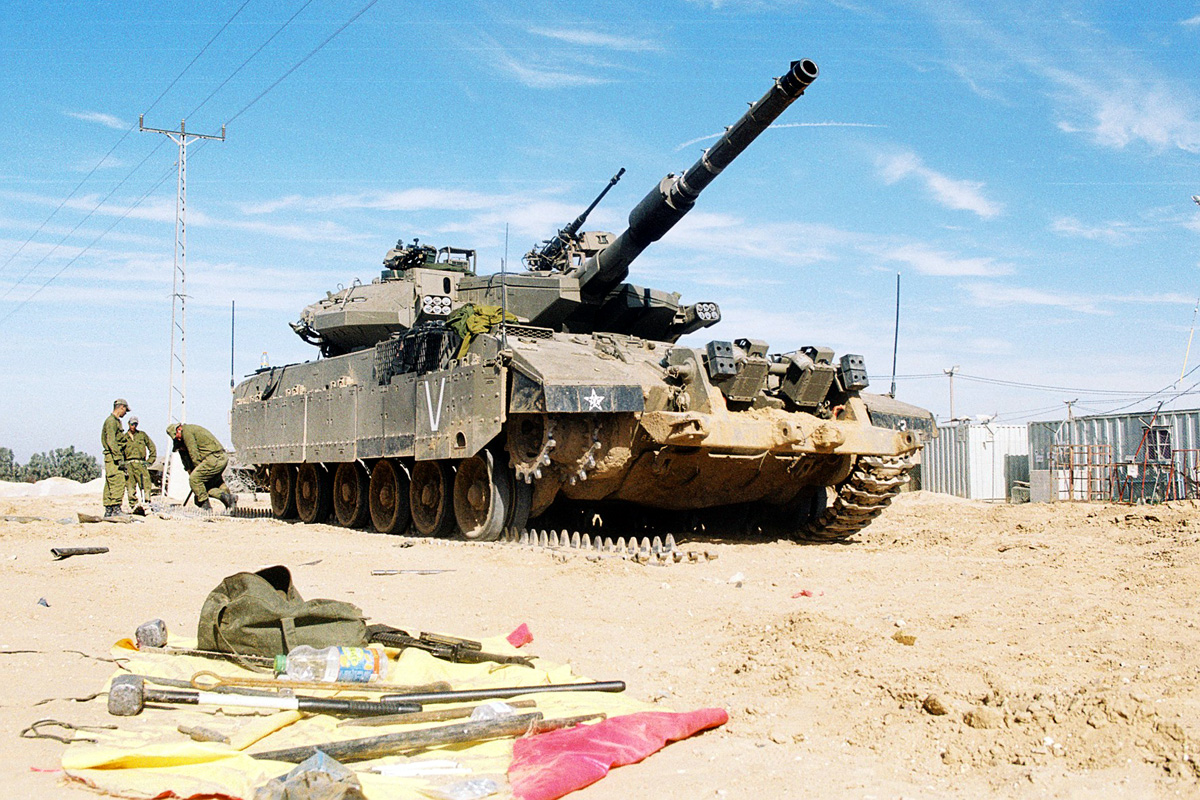Many of the Gaza Strip’s health clinics, hospitals and waste water treatment pumps were running on emergency generators on 21 January, and a number of residents said they had no access to running water in their homes, after Israel shut its borders with the impoverished enclave last week in response to rocket fire on its southern towns.
"The main [waste water] pumping station in Gaza began to flood this afternoon," Maher Najar, from the Gaza Coastal Municipalities Water Utilities, told IRIN on 21 January, noting that his generators were running out of fuel. “The area is very populated.”
Most of Gaza's 1.5 million people will be affected, he said. He also said many pumps for drinking water were not working due to the power cuts.
Israeli security officials said Defence Minister Ehud Barak will be able to personally authorise specific items for import to Gaza on a case by case basis - though food and fuel and imports have currently been completely halted, with UNRWA (the UN Agency for Palestinian Refugees) saying its aid could not get in. However, patients in urgent need will be able to enter Israel for treatment.
It remained unclear how long the newly imposed sanctions will last. The new sanctions are a follow-up to over six months of tight restrictions on Gaza after the Islamic group Hamas’s takeover.
Israeli officials have said Hamas is intentionally exaggerating the state of affairs, and one described the situation as “uncomfortable” though not a crisis. Prime Minister Ehud Olmert said he would not allow a “humanitarian crisis” to occur.
On 20 January the Gaza power plant said it shut down both of its functioning turbines, as it had no fuel left to produce electricity. While Israel and Egypt still supply Gaza with about half of its basic power needs, many parts of the Strip were plunged into the dark.
 Photo: Wissam Nassar/IRIN  |
| A premature baby in an incubator in Al Shifa hospital, Gaza. Hospital officials are warning that electricity cuts could harm such vulnerable patients |
The director of Shifa, the largest hospital in Gaza, said overnight electricity cuts had forced the medical centre to run on its emergency generators.
“We have a supply of emergency fuel for four days. But we are very concerned about working on generators. There is a chance of technical or mechanical errors with generators,” Hasan Khalaf told IRIN.
“Should this happen, dozens of people will die, including people in the ICU [intensive care unit] as well as about 30 premature babies who are incubated,” Khalaf said, noting that he had stopped all elective surgeries. Other smaller hospitals have stopped all non-urgent treatments.
Fears over food shortages
Many bakeries in the Gaza Strip were shut on the morning of 21 January, as they lacked power. The ones that were open had very long queues, residents said.
Meanwhile, with no imports of cooking gas, officials are concerned that people will not be able to prepare food.
While there are no significant food shortages yet, Gazans have expressed fear the situation will worsen, and the World Food Programme has said its fuel supplies are low and food distribution will be severely affected in a few days.
 Photo: Shabtai Gold/IRIN  |
| Immediately after a rocket fired by Palestinian militants landed in Sderot, Israeli emergency service teams arrived to help the injured and clean the area |
The increased sanctions on Gaza take place as the Israeli military continues to fight militants in the territory. Last week, about 40 Palestinians, including civilians, were killed, as was one person in Israel.
The southern Israeli town of Sderot has borne the brunt of the over 160 rockets fired from Gaza in the last week, causing damage to property and injuring several people. The shell-shocked town continued to empty in recent days.
The Israeli military action and imposed sanctions, as well as the Palestinian rocket fire, have drawn harsh criticism from local rights groups, aid groups such as Oxfam, the UN, the International Committee of the Red Cross and the European Union.
Bentita Ferrero-Waldner, the European commissioner for external relations, has called the fuel sanctions “collective punishment”, while UN Secretary-General Ban Ki Moon said he was “deeply concerned” by the violence.
shg/ar/cb
This article was produced by IRIN News while it was part of the United Nations Office for the Coordination of Humanitarian Affairs. Please send queries on copyright or liability to the UN. For more information: https://shop.un.org/rights-permissions





